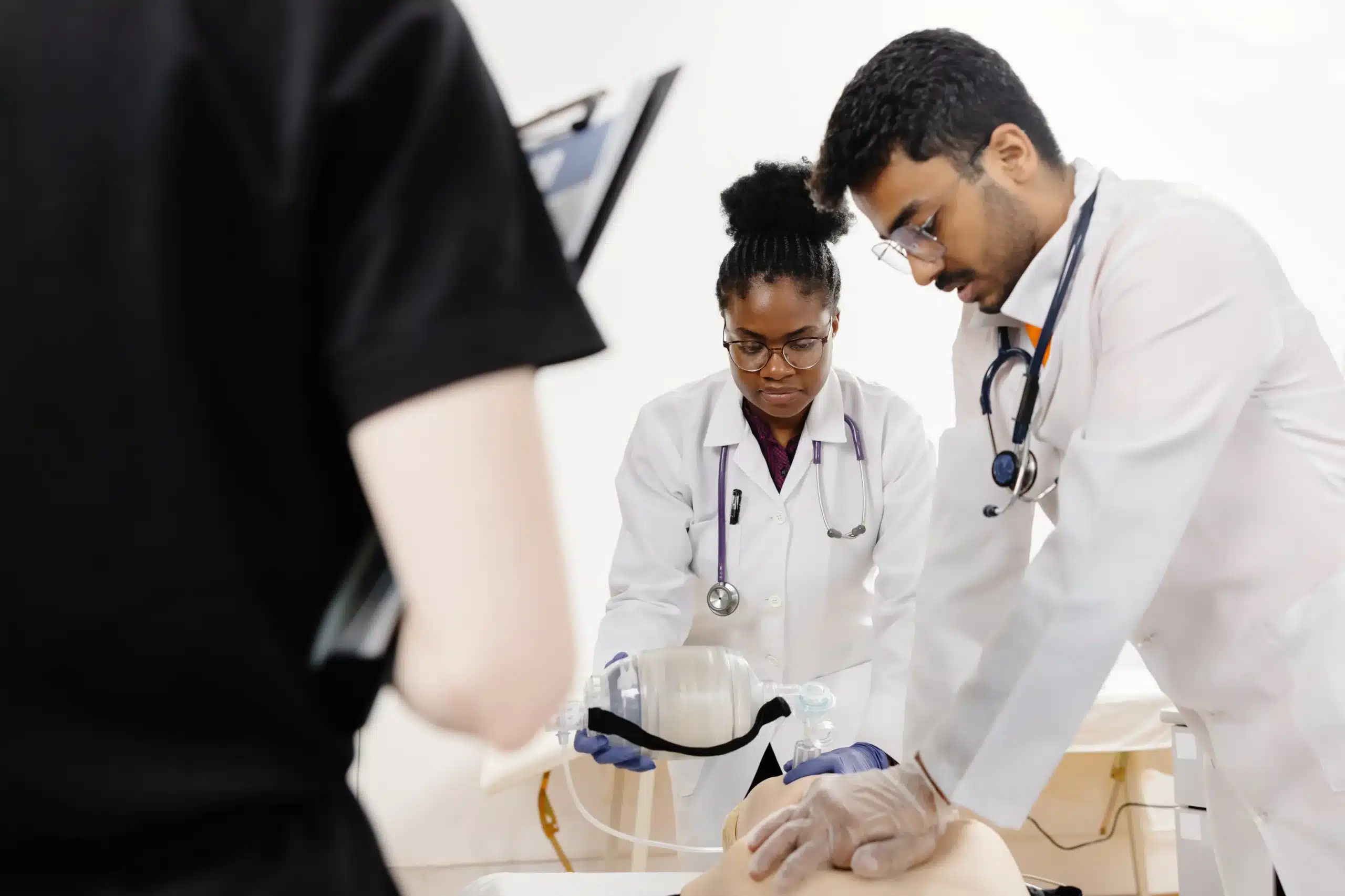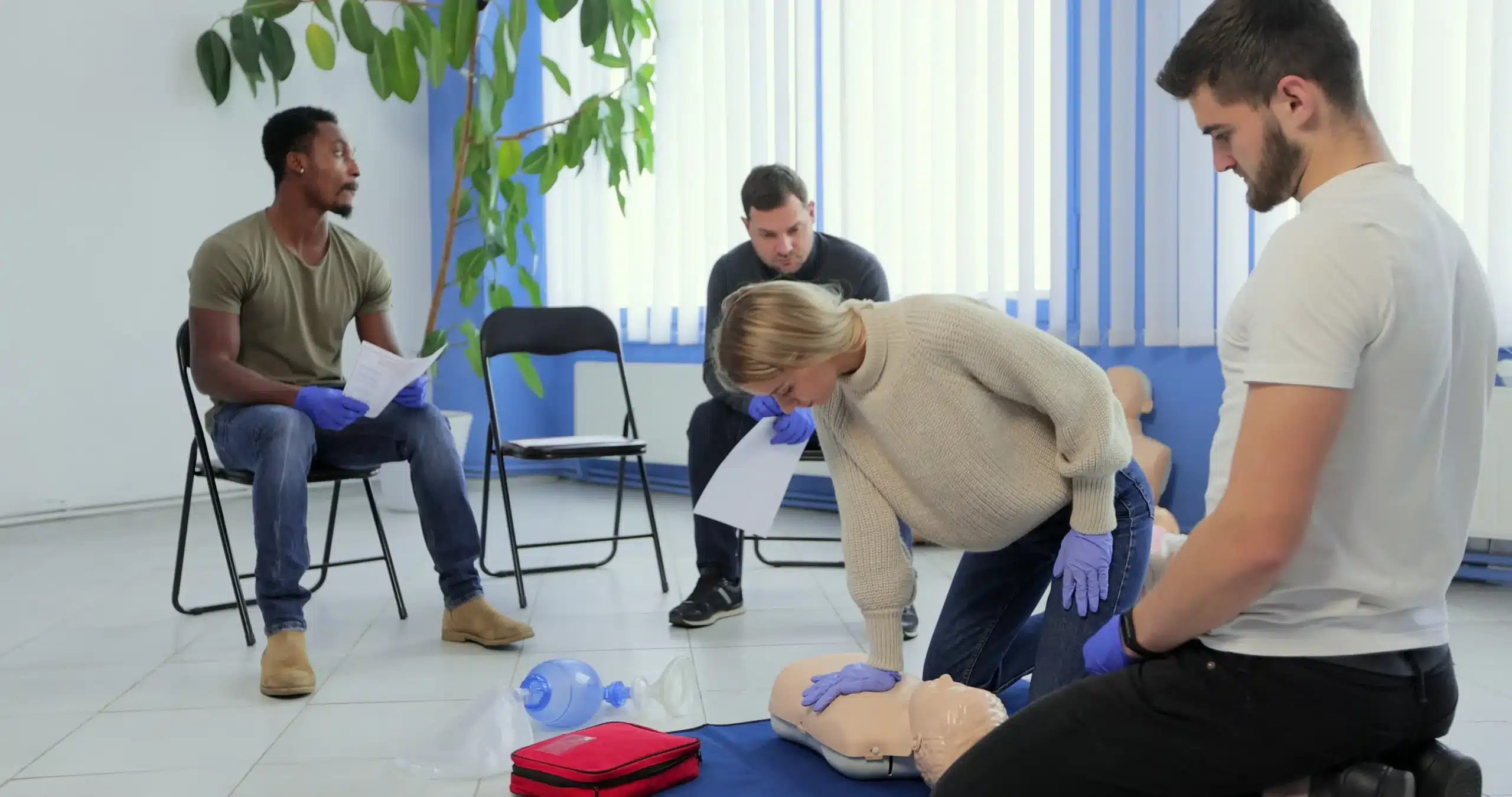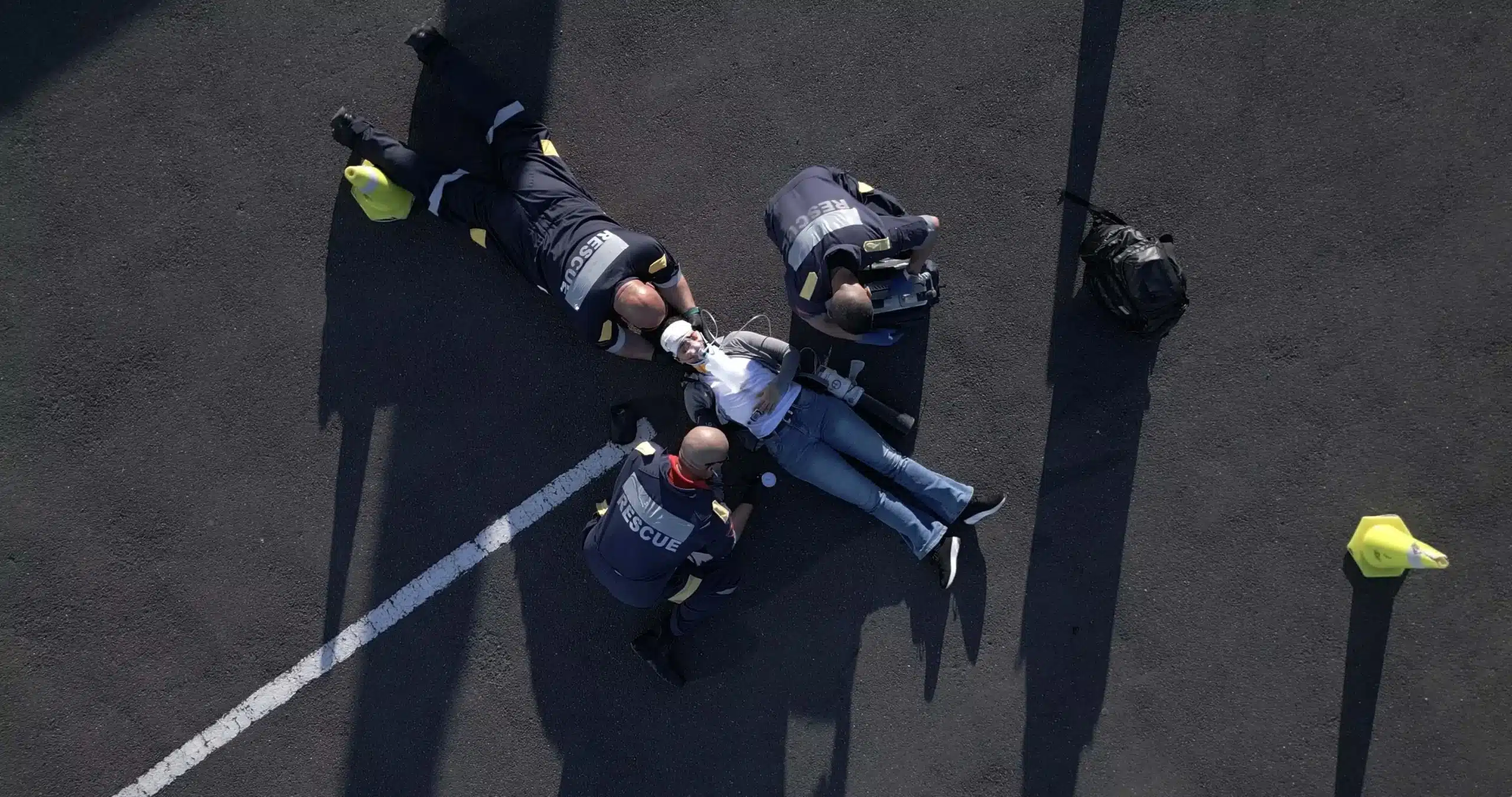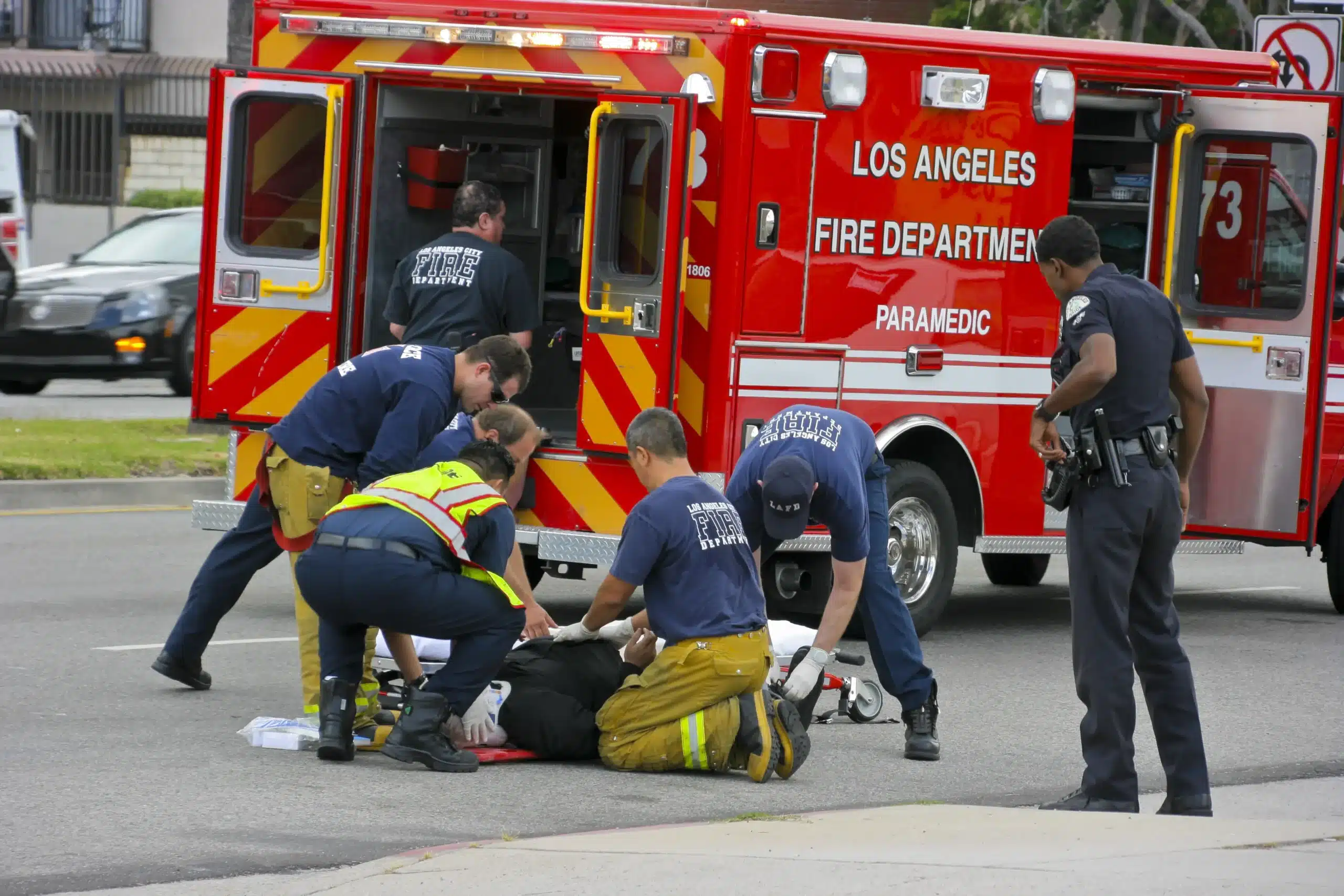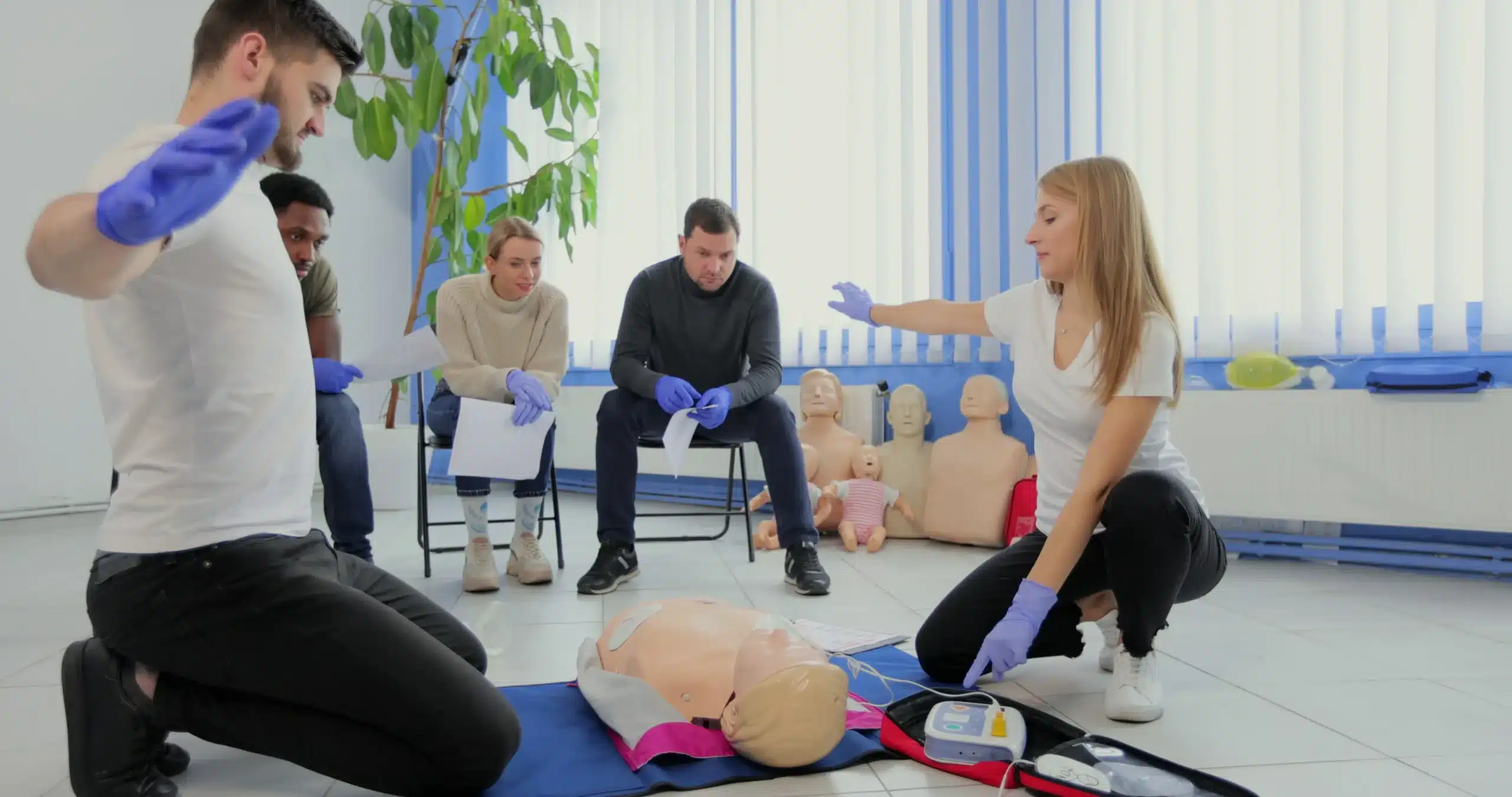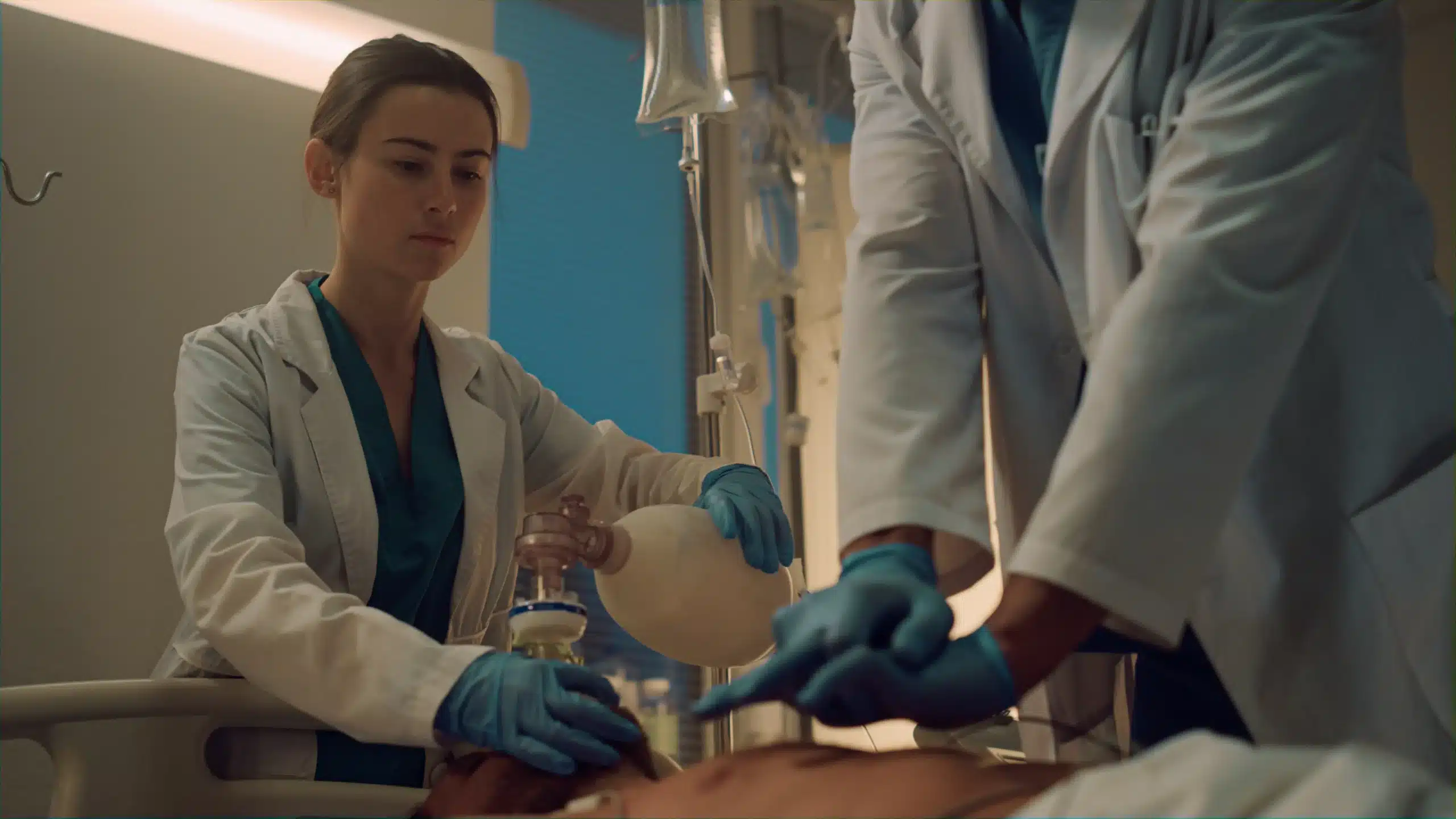Emergencies can happen anytime, anywhere. Would you know what to do? CPR classes in Madera provide the skills and confidence to respond effectively in critical situations. This comprehensive guide explores the various CPR class options available in Madera, including BLS, ACLS, and PALS certifications. We’ll also discuss the importance of instructor qualifications, what to expect during a CPR class, associated costs, and how to find the right course for your specific needs. Plus, we’ll debunk some common CPR myths and guide you through the registration process. Let’s get started and empower you to save a life.
Key Takeaways
- Find the Right CPR Class for You: Explore a range of certifications, from basic CPR and First Aid to advanced options like BLS, ACLS, and PALS, to match your individual needs and career goals.
- CPR Training Is Within Reach: Conveniently located classes, various learning formats (in-person, blended, online), and group discounts make CPR training accessible to everyone in Madera, CA, and surrounding areas.
- Become Confident in Your Skills: Hands-on practice, realistic simulations, and certified instructors ensure you gain the confidence and competence to act quickly and effectively in emergencies.
What are CPR Classes in Madera?
CPR classes in Madera offer crucial training in life-saving techniques. These classes, often certified by the American Heart Association (AHA), equip participants with the skills to respond effectively during medical emergencies. You’ll learn how to perform CPR on adults, children, and infants, and how to use an Automated External Defibrillator (AED). Many courses also cover important topics like team dynamics during resuscitation and special considerations for Basic Life Support (BLS). Understanding these elements can significantly impact the outcome of a medical crisis. For a comprehensive BLS class covering these essential skills, consider Central Valley Medical’s offerings.
Several excellent providers offer CPR training in Madera. Central Valley Medical offers a range of AHA-certified courses, including CPR, First Aid, and Advanced Cardiovascular Life Support (ACLS). They use a blended learning approach, combining online study with practical, hands-on skills practice. This combination ensures you gain both the knowledge and the confidence to apply those skills effectively. For those seeking convenient options, Madera CPR Classes provides HeartCode Complete courses, which integrate online learning with hands-on practice using voice-activated manikins. Other reputable providers like Quality CPR First Aid and React Medical Training offer comprehensive CPR training, catering to both healthcare professionals and the general public. You can find local options on sites like Yelp to compare courses and schedules. These courses empower individuals to act confidently during emergencies.
CPR Class Types
Choosing the right CPR class depends on your specific needs and goals. Whether you’re a healthcare provider, a student, or someone who wants to be prepared for emergencies, there’s a course for you. Fresno CPR Classes offers a variety of options, and we’ll explore some of the most common ones here.
Basic Life Support (BLS)
BLS certification is a foundational course covering CPR for adults, children, and infants. You’ll also learn how to use an AED and work effectively as part of a resuscitation team. This BLS course provides essential life-saving skills for anyone, especially healthcare professionals and those in caregiving roles. It emphasizes high-quality CPR and covers other critical resuscitation skills.
Advanced Cardiovascular Life Support (ACLS)
The ACLS course goes beyond the basics of CPR, focusing on advanced life support techniques for adults. It’s designed for healthcare providers, including physicians, nurses, and paramedics, who may encounter cardiac arrest and other cardiovascular emergencies in their work.
Pediatric Advanced Life Support (PALS)
Similar to ACLS, the PALS course focuses on advanced life support techniques, but specifically for infants and children. This certification is essential for healthcare providers working in pediatrics, emergency medicine, and intensive care units.
First Aid & CPR Combo Courses
Combining CPR training with first aid knowledge equips you to handle a broader range of emergencies. These combo courses teach essential first aid skills for common injuries like cuts, burns, and fractures, in addition to CPR and AED use. This comprehensive approach makes it a valuable choice for anyone wanting to be prepared.
CPR Training: Costs & Value
CPR training is an investment in life-saving skills, and understanding associated costs helps you make informed decisions. Let’s break down the typical expenses involved in getting CPR certified.
Course Costs
CPR class prices in Madera, CA, usually fall between $40 and $100. Several factors influence the final price, including the type of certification (BLS, ACLS, PALS, etc.), the class format (in-person, blended, or online), and the training center. Fresno CPR Classes offers a low-price guarantee, so you can feel confident you’re getting the best value.
Extra Fees & Materials
Beyond the course fee, you might encounter additional costs for materials. For example, a Basic Life Support (BLS) class often includes optional learning materials like the student manual. While the BLS course itself covers essential skills such as CPR for adults, children, and infants, AED use, and effective team dynamics during resuscitation, a manual can be a helpful resource. These are typically available in both paperback and ebook formats.
Group Discounts
If you’re training with a group, look for discounts. Many CPR training providers in the Madera area, including Fresno CPR Classes, offer reduced rates for group enrollments. This can be a great way to make training more affordable for businesses, community organizations, or even a group of friends. Contact providers directly to discuss options.
Instructor Expertise & Qualifications
Choosing the right CPR class involves more than just convenient times and locations. The quality of instruction directly affects how well you learn and retain these life-saving skills. Understanding your instructor’s expertise and qualifications before signing up is essential.
AHA Certifications
The American Heart Association (AHA) is one of the most recognized and respected organizations in CPR training. AHA certifications show instructors have completed rigorous training and follow the latest evidence-based guidelines. This commitment to high standards ensures comprehensive instruction, from basic life support to advanced cardiac care. For healthcare professionals, an AHA certification often signifies a deep understanding of emergency medical procedures and a commitment to patient safety, enhancing professional credibility.
Instructor Experience
Real-world experience is invaluable, alongside certifications. Instructors who’ve practiced CPR in real-life situations bring a unique perspective to the classroom, offering practical insights and realistic simulations. Many CPR instructors also teach advanced courses like ACLS and PALS, demonstrating a breadth and depth of knowledge. Look for classes with hands-on practice using training manikins, as this interactive learning helps develop muscle memory and confidence. The more comfortable you are with performing CPR on a manikin, the better prepared you’ll be in a real emergency.
What Happens in a CPR Class?
Want to know what to expect? CPR classes blend instruction, hands-on practice, and skills assessment. Let’s break down the typical CPR class experience.
Course Structure & Duration
A BLS CPR certification class typically covers essential life-saving techniques, including CPR for adults, children, and infants, how to use an AED, and how to help someone who is choking. You’ll also learn about team dynamics during resuscitation and special considerations for different rescue situations. These courses are designed to be comprehensive and efficient, often completed in a single session lasting a few hours. For example, our BLS course covers all the required material and gets you certified quickly.
Hands-on Practice & Simulations
CPR classes aren’t just lectures. Hands-on training is crucial for developing the muscle memory and confidence to perform CPR effectively. You’ll practice on training mannequins, allowing you to get comfortable with chest compressions, rescue breaths, and proper hand placement. This hands-on experience helps you understand the correct depth and rate of compressions needed to maintain blood circulation. Many courses, like our RQI classes, also incorporate simulations to mimic real-life scenarios, helping you prepare for the pressures and complexities of emergency situations.
Getting Certified
After successfully completing the course and skills assessment, you’ll receive your CPR certification card. This certification demonstrates that you’ve met the American Heart Association standards for CPR and are equipped to respond to emergencies. Remember, certifications are typically valid for two years, so mark your calendar for renewal to maintain your skills and qualifications. Our low price guarantee ensures you’re getting the best value for your training. Ready to get started? Contact us today!
Why Learn CPR?
Knowing CPR can make a real difference in critical situations. It empowers you to act quickly and confidently when every second counts, whether you’re a healthcare professional, a student in the medical field, or someone who wants to be prepared.
Be Prepared
CPR training equips you with the skills to respond effectively in a medical emergency. Think of it as a first aid essential—you hope you never need it, but you’re incredibly grateful to have it if you do. Learning CPR means you’re ready to assist family, friends, coworkers, or even strangers until professional help arrives. This preparedness can bring peace of mind, knowing you have the potential to save a life. For more information, check out this helpful resource on CPR training for laypersons and healthcare professionals.
Advance Your Career
For those in or pursuing a healthcare career, CPR certification is often a requirement and a valuable asset. It demonstrates your commitment to patient care and strengthens your resume. American Heart Association certifications, like BLS, ACLS, and PALS, are widely recognized and respected in the medical field, signaling your proficiency in essential life-saving techniques. These certifications can open doors to new opportunities and enhance your professional credibility.
Make Your Community Safer
Learning CPR isn’t just about individual preparedness; it’s about building a safer community. When more people know CPR, the chances of someone receiving immediate assistance during a medical crisis increase significantly. This creates a network of potential lifesavers, strengthening the chain of survival and contributing to a more resilient and prepared community. This article further explores the importance of CPR in healthcare and its positive impact on public health and safety.
Where to Find CPR Classes in Madera
Finding the right CPR class in Madera can feel overwhelming, but several excellent options cater to different needs and schedules. Here are a few places to start your search:
Fresno CPR Classes
Fresno CPR Classes offers a wide range of American Heart Association certifications, including BLS, ACLS, and PALS. With classes offered daily in over 60 cities, they make it easy for Madera residents to find a convenient time and location. Their commitment to affordability is backed by a low price guarantee, making them a budget-friendly choice. For larger groups, they also offer discounts. Fresno CPR Classes also provides other essential certifications like RQI. You can easily learn more or register for a class on their website.
Central Valley Medical
Located in Madera, Central Valley Medical specializes in American Heart Association-certified CPR training. They offer courses in CPR, First Aid, and ACLS, making them a solid option for both healthcare providers and the general public. Learn more about Central Valley Medical and their course offerings.
Madera Community Hospital
While Madera Community Hospital may offer CPR training, it’s best to contact them directly or check their website for the most up-to-date information on class availability and registration. Hospitals often serve as valuable community resources for CPR education.
Quality CPR First Aid
Quality CPR First Aid is another option to consider in Madera. Known for its knowledgeable instructors and comfortable learning environment, Quality CPR First Aid has received positive feedback from many students. Their focus on creating an easy-to-learn atmosphere can be especially helpful for those who might feel apprehensive about learning CPR.
Find the Right CPR Class
Finding the right CPR class involves understanding your needs, comparing available courses, and checking schedules and locations. Let’s break down each step to help you find the perfect fit.
Define Your Needs & Goals
Before you start searching for a CPR class, ask yourself why you want to learn CPR. Are you a healthcare professional needing recertification? Are you a concerned parent wanting to be prepared for emergencies at home? Or perhaps you’re looking to fulfill a job requirement? Identifying your goals will help you choose the right course. For example, healthcare providers often require BLS certification, while community members might choose a combined CPR and First Aid class. Knowing your needs will guide your search and ensure you get the most relevant training. Fresno CPR Classes offers a range of courses to suit various needs, from basic CPR to more advanced certifications. Consider what level of expertise you’re aiming for and choose a course that aligns with your goals.
Compare Courses
Once you know what you’re looking for, compare courses from different providers. Look at the types of certifications offered—BLS, ACLS, PALS—and consider the class format. Do you prefer in-person instruction, a blended learning approach, or an online course? Fresno CPR Classes offers a variety of options. Also, compare pricing and remember to prioritize the value and quality of the training alongside the cost. Look for classes that offer hands-on practice and are taught by experienced, certified instructors. Checking with providers like Central Valley Medical Education can help you see if they offer the specific certifications you need. Reading reviews and testimonials can also give you insights into the quality of instruction and the overall learning experience.
Check Schedules & Locations
Finally, consider the logistics. Check class schedules and locations to find a course that fits your availability and is conveniently located. Many providers offer flexible options, including weekday and weekend classes, evening courses, and intensive one-day courses. Look for providers with multiple locations or online options for added convenience. Websites like CPR Near Me can help you find classes in your area. Remember to factor in travel time and any potential conflicts with your existing schedule. Finding a class that’s easy to attend will increase your chances of completing the training successfully. Contact us if you have questions about scheduling or finding a location that works for you.
Register for a CPR Class
Ready to learn CPR? Fresno CPR Classes offers daily classes in over 60 cities, making it easy to find a course that fits your schedule. This section walks you through registration, prerequisites, and payment.
Steps to Register
Registering for a class is straightforward. Visit our website to view the online calendar and choose a date and time that works for you. For questions or to register directly, contact us by phone or text at (559) 765-0306.
Required Documents & Prerequisites
There are no prerequisites or required documents for our general CPR, First Aid, and combination courses. These courses are designed for everyone—from healthcare providers and students to community members wanting to learn these vital skills. For specialized courses like BLS, ACLS, PALS, or NRP, some prior medical knowledge might be helpful. Reach out if you have questions about specific course requirements.
Payment Options
We offer a low price guarantee and accept various payment methods. Pay securely online during registration or contact us to discuss other options. We also offer group discounts—if you’re registering with a group, ask about potential savings. Additional materials, such as manuals or ebooks, are available but not required.
CPR Training Myths
It’s important to separate fact from fiction when it comes to CPR. Misconceptions can create hesitation in a real emergency, so let’s clear up some common myths:
“CPR Restarts Hearts”
One persistent myth is that CPR restarts hearts. CPR primarily maintains blood circulation and oxygen flow to the brain and other vital organs. It buys precious time until advanced medical help arrives. While CPR can sometimes restore a normal heart rhythm, its main function is to keep the body alive until defibrillation or other interventions can be administered. This article on CPR facts offers a helpful perspective.
“Only Medical Professionals Use CPR”
Anyone can and should learn CPR. It’s a life-saving skill accessible to everyone. Bystanders trained in CPR play a crucial role, often being the first to provide assistance in emergencies. CPR Baton Rouge discusses this and other myths, emphasizing the importance of widespread CPR training. Fresno CPR Classes offers courses for all skill levels, empowering anyone to become a confident responder.
“Mouth-to-Mouth is Required”
Current guidelines from the American Heart Association (AHA) prioritize chest compressions. While mouth-to-mouth resuscitation can be beneficial in certain situations, hands-only CPR is often sufficient and easier for bystanders to perform. This approach simplifies the process and encourages more people to act quickly.
“Perform CPR Until Help Arrives”
CPR is physically demanding, and it’s unrealistic to perform it continuously until EMS arrives. Focus on providing high-quality compressions until you’re physically unable to continue or someone else can take over. Instructors in our CPR classes cover recommended practices for managing fatigue during CPR. Even a short period of CPR can significantly improve someone’s chances of survival.
Related Articles
- CPR Classes in Fresno: Your Complete Guide – Fresno CPR Classes
- CPR, BLS, ACLS, PALS, & First-aid Classes in Fresno, CA
- CPR & First-aid Classes in Fresno, CA – Fresno CPR Classes
- CPR Courses in Fresno: Find the Right Class for You – Fresno CPR Classes
- Online CPR Classes in Clovis: Your Guide – Fresno CPR Classes
Frequently Asked Questions
What if I’m nervous about performing CPR in a real emergency? It’s completely normal to feel apprehensive. CPR classes emphasize hands-on practice and simulations to build confidence. The more you practice, the more comfortable you’ll become. Remember, even imperfect CPR is better than no CPR.
How long is a CPR certification valid, and how do I renew it? CPR certifications are typically valid for two years. Check with your certifying organization, like the American Heart Association, for specific renewal requirements. Many training centers offer refresher courses to help you stay up-to-date.
What’s the difference between BLS, ACLS, and PALS? BLS (Basic Life Support) is the foundation, covering CPR and AED use for all ages. ACLS (Advanced Cardiovascular Life Support) is for healthcare professionals dealing with adult cardiac emergencies. PALS (Pediatric Advanced Life Support) focuses on advanced life support for infants and children.
Do I need any prior medical knowledge to take a CPR class? No prior medical knowledge is needed for basic CPR and First Aid classes. These courses are designed for everyone. More advanced courses like ACLS and PALS might benefit from some medical background, but it’s not strictly required.
How do I choose the right CPR class for me? Consider your goals. Are you a healthcare professional, a student, or a community member? Do you need a basic or advanced certification? Think about your schedule and preferred learning style (in-person, blended, or online). Compare different providers and look for experienced instructors and hands-on practice.
